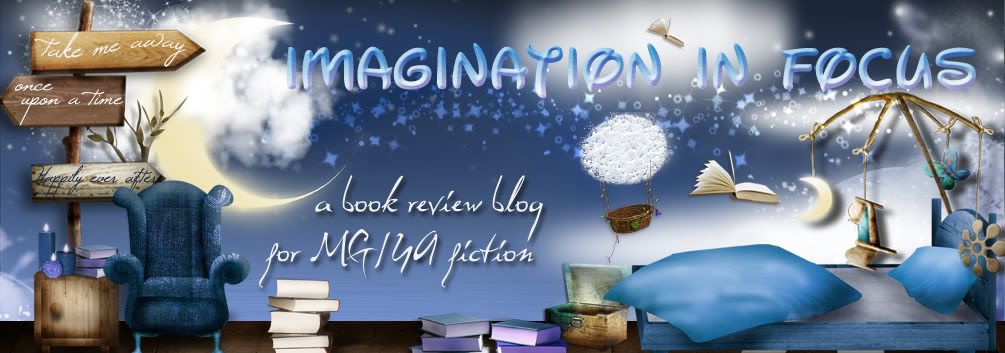Unwind - Neal Shusterman
Genre: YA Dystopian
# of pages: 335 (hb)
Unwind @ Parental Book Reviews

This is looking to be the Summer of Dystopian... I finished Divergent, got a lot of books at BEA that forecast more dystopians for the fall, and somewhere in between, I bought a copy of Unwind, a book that I'd heard about repeatedly as being one of the best dystopians in the YA genre.
You all know I try to ignore hype (as an example, I was genuinely surprised to find Divergent as enjoyable as the hype made it out to be). However, this is one book that is completely deserving of praise, and not only that, it is one of the best dystopians I've ever read.
Why, you ask? I'll refer you to the publication date. Unwind was published in 2007, before dystopians truly took off as the 'next big thayng.' Even before The Hunger Games (2008).
In other words, Unwind is truly innovative and original because there really wasn't anything around at the time for it to copy. In a literary atmosphere where more and more dystopians are all about romance, love triangles and "OMG big bossy governments are so mean!", this novel stands out.
For one thing, the premise is both clever and chillingly realistic. In the near future, an event known as the Second Civil War takes place. The issue this time is reproductive rights, with pro-lifers pitted against pro-choicers. The fighting results in a disturbing compromise called the Bill of Life, which implements the practice of Unwinding. Guys, you want a dystopian with a creepy/original premise that really makes you think, 'Gah, could this really happen?' Here it is, right here. I can't imagine love ever being a disease, or matching people up based on...well, I still don't get the reason for wanting to do that. But unwinding troubled and unwanted kids, thereby easing juvenile delinquency and solving organ donor shortages ? Eerily contemplative.
Neal Shusterman is up there with Scott Westerfeld as extremely gifted, KISS-style dystopian writers (yes, yes, Westerfeld has written a host of other stuff. I'm talking about his dystopian skills). Shusterman gives readers 3 characters to follow: Connor, a good kid with some bad habits; Risa, a highly gifted musical prodigy, and Lev, a young boy raised by his fundamentalist family to be a "tithe." Each of these characters had their own identity and were strong characters throughout. I especially appreciated that Connor was never really that bad in the first place, only a little immature, and that he was able to grow into this sensitive, capable leader. It was a really cool transformation to watch. Lev's transformation, from a sweet but naive kid to a hardened, streetwise punk, was no less powerful but somehow slightly less enjoyable.
But as much as I liked the characters and how they were portrayed, it's the story world and plot execution of Unwind that really makes it a unique read. I was very, very impressed with Shusterman's ability to equally show both sides of an issue. At the heart of good dystopians are commentaries about our current society, and yes, these commentaries usually manifest in political forms. What really makes Unwind special is Shusterman's ability to pick an issue - say, reproductive rights/right to life - and take it straight down the middle (in contrast, much as I love Scott Westerfeld, he did get a bit preachy with those Rusties in Uglies). I just wanted to say that I was really, really impressed with Shusterman, and really respect him for not just picking whichever agenda suited him best, and molding a story from it. It makes Unwind all the more worthy of attention.
The only 'complaint' I have is that the writing style was a little weird. It's written in third-person present-tense, which I've never encountered before. For example, "Amelia pauses in between sentences, thinking of what she will say next." It just took some getting used to. Also, the perspectives switched a lot between characters, sometimes randomly, which got a little confusing. Other than some writing-style issues, this book was an amazing read.
I do think the ending could have been better - some things happened at the end that I wish hadn't happened! Oh well, though. I will caution you that the scariest part (yes, I said "SCARY") is close to the end. I'll just say that Neal Shusterman isn't the type to totally keep readers in the dark - you'll get to see exactly *what* happens in the sinister Unwinding process, and
it.
is.
freaky.
*Nightmares!*
The ending was satisfying, though, and sets the stage nicely for the sequel, Unwholly, which will be released in 2012.
My humble suggestion? If you consider yourself a fan of dystopian fiction (and especially if you're growing tired of the - *ahem* - tendency for repetition in YA dystopians), check out this book, 'cause it's one of the ones that started it all!
(A word on content: there is a moderate amount of violence in this book, aside from the general premise of harvesting teens' organs in a disturbing process known as 'Unwinding.' There's no sexual content apart from kissing and some innuendo. For more information, see the link at the top)
Final Rating

Notable Passages
Unwind @ Amazon
Genre: YA Dystopian
# of pages: 335 (hb)
Unwind @ Parental Book Reviews

The Second Civil War was fought over reproductive rights. The chilling resolution: Life is inviolable from the moment of conception until age thirteen. Between the ages of thirteen and eighteen, however, parents can have their child "unwound," whereby all of the child's organs are transplanted into different donors, so life doesn't technically end. Connor is too difficult for his parents to control. Risa, a ward of the state is not enough to be kept alive. And Lev is a tithe, a child conceived and raised to be unwound. Together, they may have a chance to escape and to survive.
This is looking to be the Summer of Dystopian... I finished Divergent, got a lot of books at BEA that forecast more dystopians for the fall, and somewhere in between, I bought a copy of Unwind, a book that I'd heard about repeatedly as being one of the best dystopians in the YA genre.
You all know I try to ignore hype (as an example, I was genuinely surprised to find Divergent as enjoyable as the hype made it out to be). However, this is one book that is completely deserving of praise, and not only that, it is one of the best dystopians I've ever read.
Why, you ask? I'll refer you to the publication date. Unwind was published in 2007, before dystopians truly took off as the 'next big thayng.' Even before The Hunger Games (2008).
In other words, Unwind is truly innovative and original because there really wasn't anything around at the time for it to copy. In a literary atmosphere where more and more dystopians are all about romance, love triangles and "OMG big bossy governments are so mean!", this novel stands out.
For one thing, the premise is both clever and chillingly realistic. In the near future, an event known as the Second Civil War takes place. The issue this time is reproductive rights, with pro-lifers pitted against pro-choicers. The fighting results in a disturbing compromise called the Bill of Life, which implements the practice of Unwinding. Guys, you want a dystopian with a creepy/original premise that really makes you think, 'Gah, could this really happen?' Here it is, right here. I can't imagine love ever being a disease, or matching people up based on...well, I still don't get the reason for wanting to do that. But unwinding troubled and unwanted kids, thereby easing juvenile delinquency and solving organ donor shortages ? Eerily contemplative.
Neal Shusterman is up there with Scott Westerfeld as extremely gifted, KISS-style dystopian writers (yes, yes, Westerfeld has written a host of other stuff. I'm talking about his dystopian skills). Shusterman gives readers 3 characters to follow: Connor, a good kid with some bad habits; Risa, a highly gifted musical prodigy, and Lev, a young boy raised by his fundamentalist family to be a "tithe." Each of these characters had their own identity and were strong characters throughout. I especially appreciated that Connor was never really that bad in the first place, only a little immature, and that he was able to grow into this sensitive, capable leader. It was a really cool transformation to watch. Lev's transformation, from a sweet but naive kid to a hardened, streetwise punk, was no less powerful but somehow slightly less enjoyable.
But as much as I liked the characters and how they were portrayed, it's the story world and plot execution of Unwind that really makes it a unique read. I was very, very impressed with Shusterman's ability to equally show both sides of an issue. At the heart of good dystopians are commentaries about our current society, and yes, these commentaries usually manifest in political forms. What really makes Unwind special is Shusterman's ability to pick an issue - say, reproductive rights/right to life - and take it straight down the middle (in contrast, much as I love Scott Westerfeld, he did get a bit preachy with those Rusties in Uglies). I just wanted to say that I was really, really impressed with Shusterman, and really respect him for not just picking whichever agenda suited him best, and molding a story from it. It makes Unwind all the more worthy of attention.
The only 'complaint' I have is that the writing style was a little weird. It's written in third-person present-tense, which I've never encountered before. For example, "Amelia pauses in between sentences, thinking of what she will say next." It just took some getting used to. Also, the perspectives switched a lot between characters, sometimes randomly, which got a little confusing. Other than some writing-style issues, this book was an amazing read.
I do think the ending could have been better - some things happened at the end that I wish hadn't happened! Oh well, though. I will caution you that the scariest part (yes, I said "SCARY") is close to the end. I'll just say that Neal Shusterman isn't the type to totally keep readers in the dark - you'll get to see exactly *what* happens in the sinister Unwinding process, and
it.
is.
freaky.
*Nightmares!*
The ending was satisfying, though, and sets the stage nicely for the sequel, Unwholly, which will be released in 2012.
My humble suggestion? If you consider yourself a fan of dystopian fiction (and especially if you're growing tired of the - *ahem* - tendency for repetition in YA dystopians), check out this book, 'cause it's one of the ones that started it all!
(A word on content: there is a moderate amount of violence in this book, aside from the general premise of harvesting teens' organs in a disturbing process known as 'Unwinding.' There's no sexual content apart from kissing and some innuendo. For more information, see the link at the top)
Final Rating

Notable Passages
There was a time, shortly after the Bill of Life was passed, that Dumpsters such as that would be tempting to girls like her. Desperate girls who would leave unwanted newborns in the trash. It had become so common that it wasn't even deemed newsworthy anymore - it had become just a part of life. Funny, but the Bill of Life was supposed to protect the sanctity of life. Instead it just made life cheap. Thank goodness for the Storking Initiative, that wonderful law that allows girls like her a far better alternative...
With the burden now lifted from her, she has sudden strength. She now has a second chance in life, and this time she'll be smarter - she's sure of it. As she hurries down the street, she thinks how wonderful it is that she can get a second chance. How wonderful it is that she can dismiss her responsibility so easily...
- 53-54
"People shouldn't do a lot of things," says Connor. He knows they're both right, but it doesn't make a difference. In a perfect world mothers would all want their babies, and strangers would open up their homes to the unloved. In a perfect world everything would be either black or white, right or wrong, and everyone would know the difference. But this isn't a perfect world. The problem is people who think it is.
- 75
"So the Dunfees found the records. The father, I think worked for the government, so he was able to hack into the parts department."
"The what?"
Hayden sighs. "The National Unwind Database."
"Oh."
"And he gets a printout of every single person who received a piece of Humphrey. Then the Dunfees go traveling around the world to find them...so they can kill them, take back the parts, and bit by bit make Humphrey whole..."
"No way."
"That's why people call him Humphrey," Connor adds. "Cause 'all the king's horses and all the king's men...couldn't put Humphrey together again.'"
- 106
"Sure, I can talk like you, but I choose not to. It's like art, you know? Picasso had to prove to the world he can paint the right way, before he goes putting both eyes on one side of a face, and noses stickin' outta kneecaps and stuff. See, if you paint wrong because the best you can do, you just a chump. But you do it because you want to? Then you're an artist." He smiles at Lev. "That's a bit of CyFi wisdom right there, Fry. You can take that to the grave, and dig it up when you need it!"
- 125
Then Hayden asks the question. Not a question, the question. Asking it is the great taboo among those marked for unwinding. It's what everyone thinks about, but no one ever dares to ask aloud.
"So then," says Hayden, "if every part of you is alive but inside someone else...are you alive or are you dead?"
- 167
"If I'm unwound," says Hayden, "I want my eyes to go to a photographer - one who shoots supermodels. That's what I want these eyes to see."
"My lips'll go to a rock star," says Connor.
"These legs are definitely going to the Olympics."
"My ears to an orchestra conductor."
"My stomach to a food critic."
"My biceps to a body builder."
"...I wouldn't wish my sinuses on anybody."
- 176
On the existence of a soul, whether unwound or unborn, people are likely to debate for hours on end, but no one questions whether an unwinding facility has a soul. It does not.
- 265
In her mind's eye she always pictured harvest camps as human cattle stockades: dead-eyed crowds of malnourished kids in small gray cells - a nightmare of dehumanization. Yet somehow this picturesque nightmare is worse. Just as the airplane graveyard was Heaven disguised as Hell, harvest camp is Hell masqueraded as Heaven.
- 268
Unwind @ Amazon














